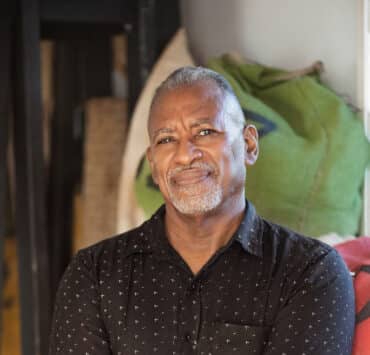|
Getting your Trinity Audio player ready...
|
Mentors have played a huge role in Paul J. Diaz’s life since he was a boy working odd jobs at a local Miami hospital. Today, Diaz leads Myriad Genetics as president and CEO, and his goal is to lead by example and advocate not just for employees but for the communities the company serves.
Diaz took the helm at Myriad in August 2020 and is using the lessons he learned from mentors to engage his teams and employees. He speaks particularly fondly of his first mentor, his grandfather, who worked as a surgeon in his native Cuba before immigrating to Miami.
Diaz’s grandfather found work in local hospitals, inspiring Diaz, who began volunteering at a local hospital in Miami as part of his Eagle Scout project. Diaz worked various jobs at the hospital, but one experience stands out.
“The hospital administrator asked me to be his interpreter since he did not speak Spanish,” Diaz recalls. “A couple of times a week, I would go with him as he visited every patient’s room. He made healthcare personal. I was thirteen or fourteen at the time, and that left an impression on me about listening to patients and staff and understanding if people were getting what they needed. This experience left an impression about the importance of making it personal beyond all the clinical expertise. It showed me that good patient care is listening to what patients need and what providers need to care for them.”
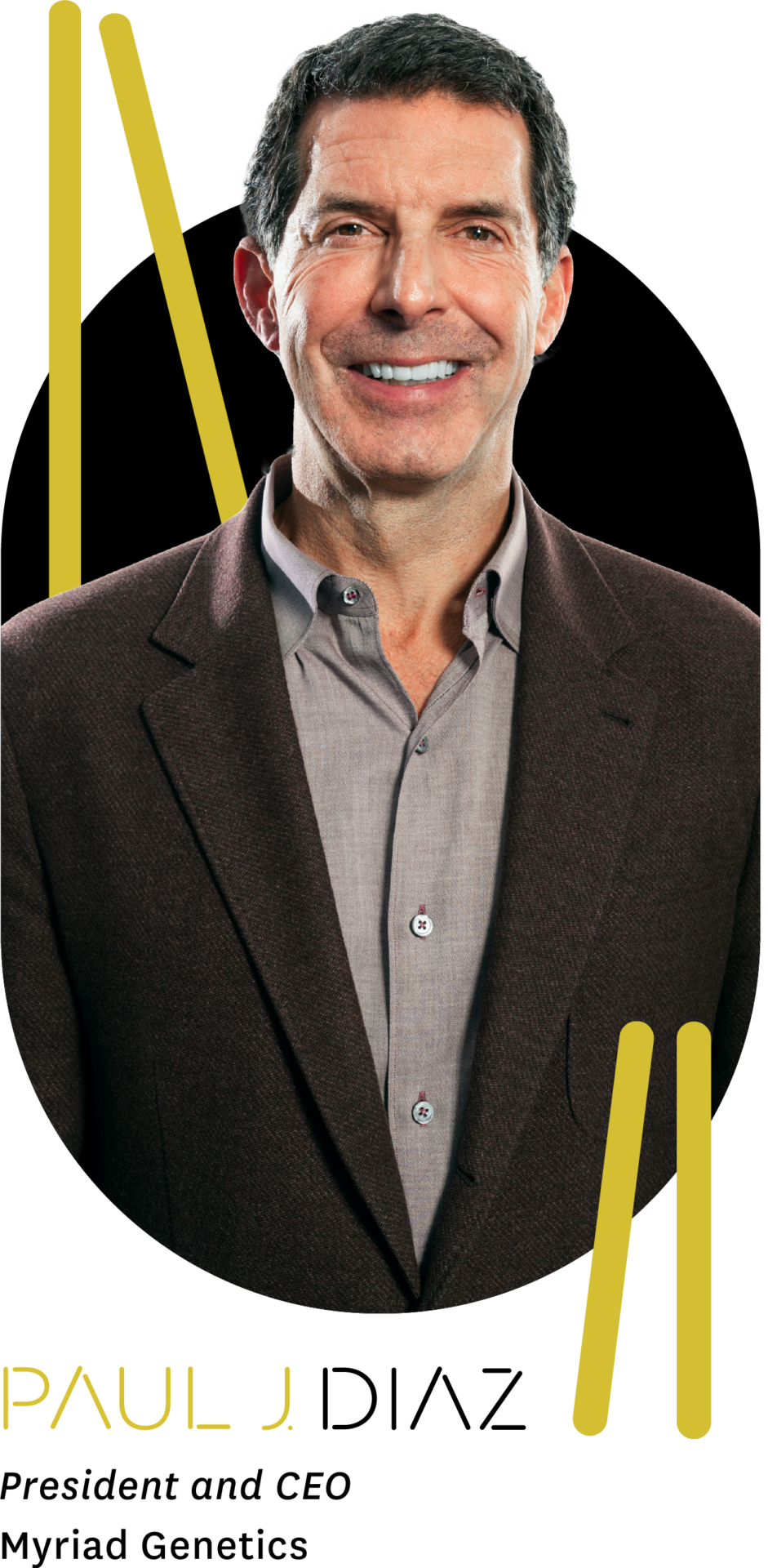
Diaz followed through on his goal of becoming an active listener, even as he has pushed for transformative change in healthcare. He continues to seek opportunities to engage with employees, whom he prefers to call “teammates.” He also is known to urge those around him to tackle problems from the point of view of a patient or physician. Diaz points to these practices as the ones that have contributed to his career in healthcare leadership, but they are also the ones he has leaned on to help Myriad Genetics emerge from tough times and navigate the COVID-19 pandemic.
“One of our biggest advantages is our 2,300 dedicated teammates who are patient- and mission-focused,” Diaz says. “We come to work to do good and to do well. And at Myriad Genetics, we empower patients with vital genetic insights and help healthcare providers better detect, treat, and prevent disease. It’s meaningful and it matters.
“But clearly, it hasn’t been easy to do this remotely and build a trust-based organization through Zoom,” the CEO continues. “We are all dealing with how to stay connected. We’re trying to meet teammates where they are, supporting them and figuring it out one team at a time.”
One way Diaz and his leadership team have worked to stay engaged with employees is through the creation of a group composed of cross-functional leaders. That group (approximately sixty to seventy managers) holds regular forums to discuss how the pandemic and other issues are affecting employees. Those forums provide space for team members to speak openly about problems they are facing and the best ways to solve them.
This approach has also been helpful in supporting the Myriad employees who work in labs and can’t easily do their jobs remotely. “We strive to look at issues from a personal perspective, exploring new solutions and transforming how we can work differently and digitally.”
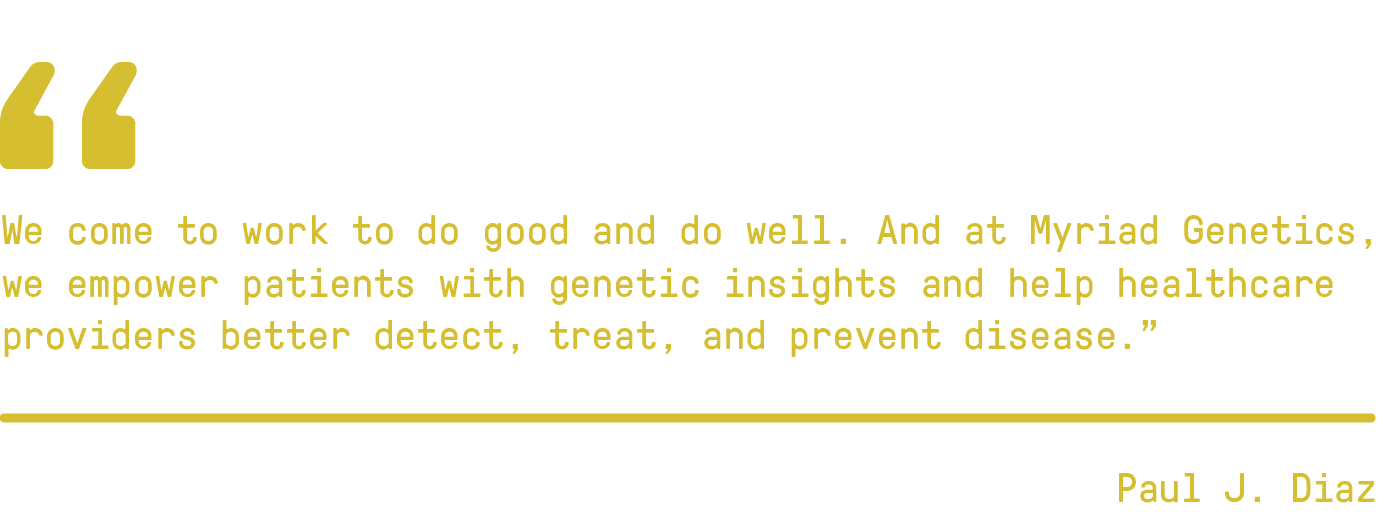
One drawback of the pandemic is that Diaz can’t practice his habit of leadership by walking around and talking with people at all levels of the organization in their work environment. Instead, in this era of remote work, Diaz has had to settle for “digital walks” with employees.
“My goal is to get out of people’s way and break down silos so we can take better care of our customers and our business.” Diaz is quick to point to the team around him for stepping up to new ways of working. “We need to apply the same science to running our business that we do to our science and our R&D and discovery,” he says. “We’re not completely there yet, but we’re on our way.”
As CEO, Diaz also considers it a priority to listen to the diverse populations and communities that Myriad serves. It is only through such efforts, he emphasizes, that Myriad can better serve patients across the nation and world.
Diaz is especially excited about how the company is recommitting to innovation and to enhancing critical testing technologies. In 1996, he explains, Myriad introduced the first genetic test to assess the risk of hereditary breast and ovarian cancer. That test has since become part of the standard of care for determining a person’s risk of developing these cancers.
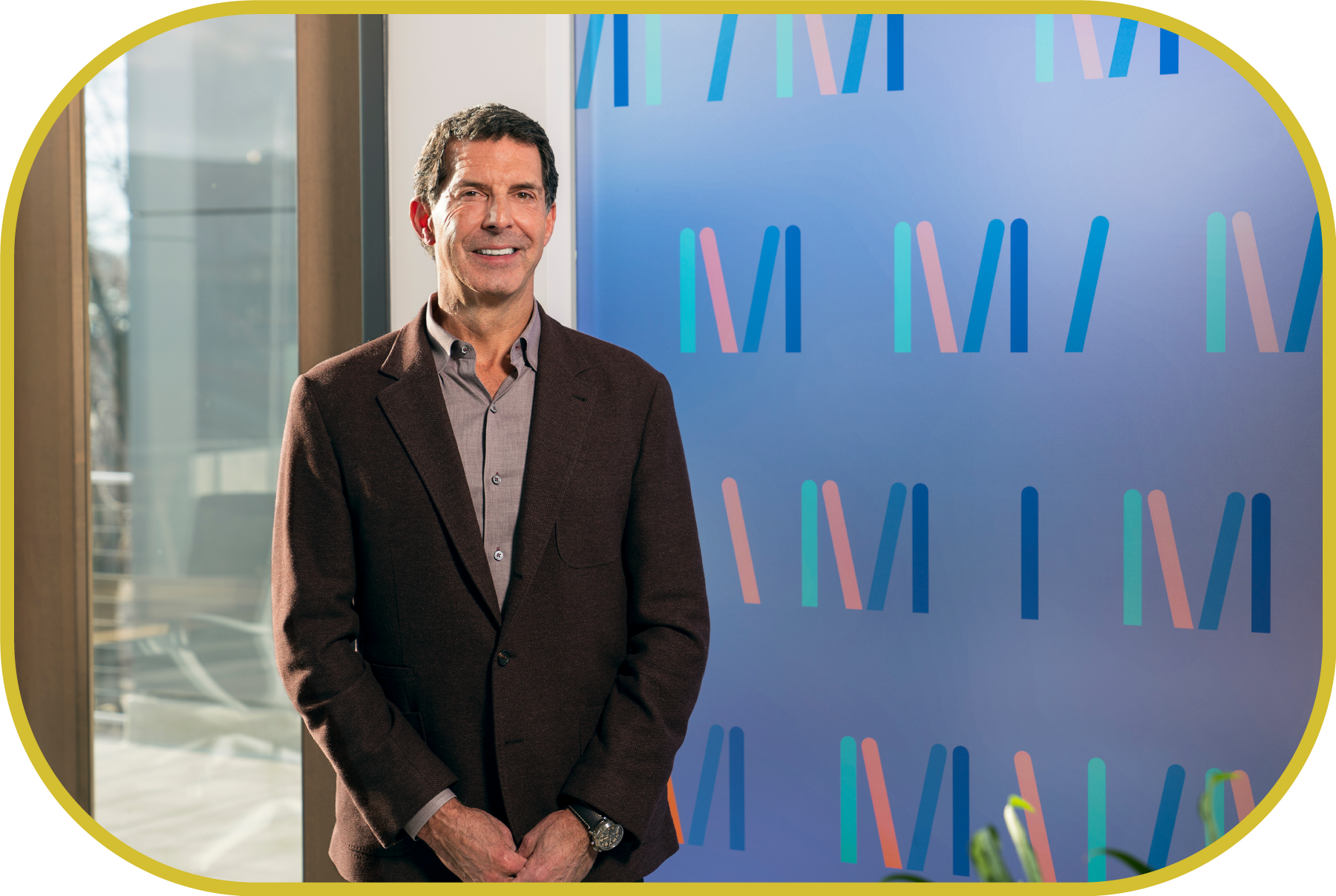
“Now, Myriad has launched the first and only test of its kind that gives people of all ancestries a risk profile for breast cancer,” Diaz says. “The pandemic exposed the extreme inequities of the healthcare system. We are trying to make it much more inclusive.”
Myriad is embracing the same approach for other tests it is developing, including prenatal tests. As Diaz explains, this is part of Myriad’s decision to focus on mental health, women’s health, and oncology, and to build a culture of service excellence, innovation, and reduced complexity and cost within those three areas.
Genetic testing is a key building block for the future of precision medicine, but Diaz says it’s not as widely available, nor as accessible and affordable, as it should be. The company is addressing these challenges by focusing on access for all, ease of testing, and growing partnerships and collaborations.
“We believe genetic testing should be as common as a blood count, mammogram, or ultrasound—and we don’t want money to get in the way of access to needed tests,” the CEO stresses, noting that 95 percent of payers cover Myriad testing in network. “We are continuing our long-standing financial assistance programs. As our business performance continues to improve, we can invest more in research and development and in our communities, giving opportunities for health screenings and other initiatives.”
Diaz has high confidence his employees will continue to innovate by applying the power of technology and data-driven insights. He also believes in the company’s ability to find new ways to reduce health disparities across racial, social, and economic lines. Myriad already is accelerating a shift toward telehealth and virtual care while expanding access to tests and services for underserved communities, and Diaz says the company will also expand efforts to develop software that will help make reaching people easier.

Myriad is the fourth healthcare company Diaz has worked at. He began his career as a lawyer, but one of his clients—a nursing home administrator—convinced Diaz to leave his legal practice and join a start-up company called Allegis Health Services in 1989. Allegis grew into a well-respected post-acute company that managed nursing homes before being sold to Mariner Health Group in 1996.
Diaz later became executive vice president and chief operating officer of Mariner Health Group, roles which laid the foundation for his move to Kindred Healthcare in 2002. He led Kindred as president and CEO for nearly fourteen years, and then joined Cressey and Company, a healthcare-focused private equity firm, before being named CEO of Myriad.
At each of his previous companies, Diaz worked to keep people the focus of healthcare. “I have been lucky to work with really wonderful people and mentors who have guided me,” he reflects. “Whether you are a lab tech or a senior vice president, everyone wants to know how their job matters.”
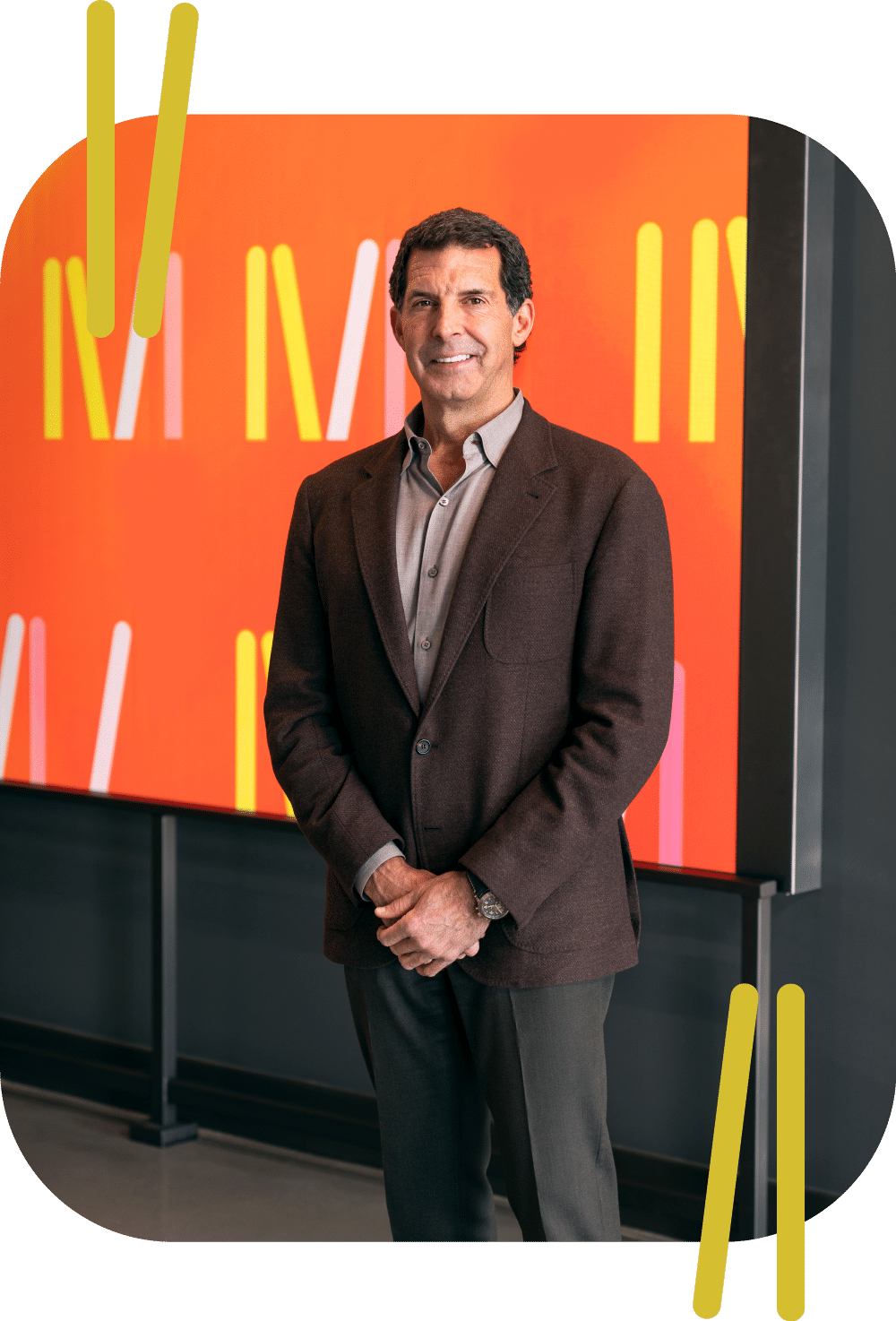
Diaz advises up-and-coming leaders to look for mentors, listen as much as they can, and look at every experience as an opportunity. “Be intentional about the opportunities given to you to learn and grow,” he says.
The CEO is hoping to give exactly those kinds of opportunities to young people in Louisville, Kentucky, through a program called SummerWorks. “We start early with kids to help train them on soft skills like filling out a résumé, making sure they know the importance of being on time for work, simple stuff like that,” he explains. “We need to be intentional about internships and opportunities to learn.”
Summerworks also helps kids overcome common obstacles to achieving their goals, including financial hardship. Looking back, this pillar of the program hits home for Diaz.
“My grandfather left Cuba with nothing. He hid my grandmother’s jewelry in the heels of his shoes, and when he came to the States, he hocked all of it to buy a little house in Miami that eight of us shared,” he says. “
He was always the one who pushed me to read and become educated, and I worked through college to pay for my education. “A lot of people along the way will tell you that you can’t do something,” the CEO continues, “but I learned to never let anybody tell me I couldn’t achieve.”

